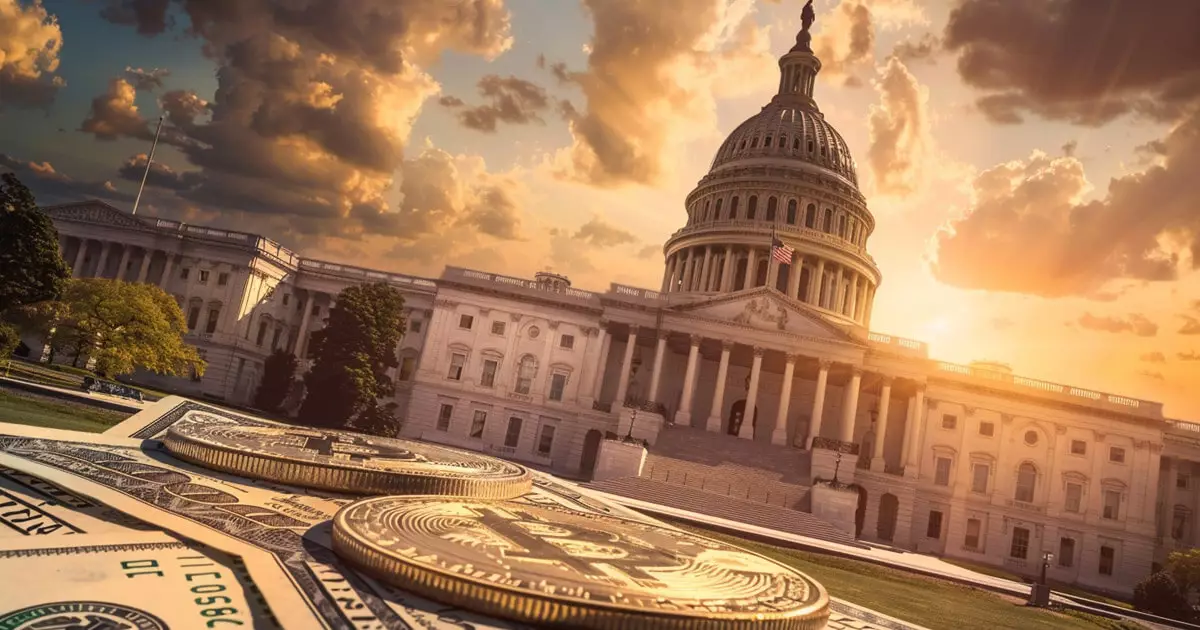The appointment of Rep. French Hill (R-Ark.) as chair of the House Financial Services Committee signifies a critical turning point for cryptocurrency regulation in the United States. With his prior experience as the chair of the Subcommittee on Digital Assets, Financial Technology, and Inclusion, Hill possesses a robust understanding of the intricacies involved in the crypto industry’s technological and financial frameworks. This strategic position not only accentuates the GOP’s commitment to reforming market structures but also sets a decisive stage for potential legislation surrounding digital assets starting on January 3.
A major challenge facing the cryptocurrency sector has been the ambiguity surrounding the classification of digital assets. One of Hill’s immediate goals will be to foster clearer definitions and distinctions between securities and commodities, an initiative that has eluded Congress for years. Establishing reserve requirements for stablecoins will also likely be at the forefront of his legislative agenda. Such measures aim to protect consumers, enhance market stability, and engender trust among investors, all of which are essential to propelling the industry forward.
Hill’s co-authorship of the Financial Innovation and Technology for the 21st Century Act (FIT21), which aimed to provide a bipartisan framework for market structure reforms, underscores his commitment to this cause. Even though the bill faced a stall in the Senate, Hill’s persistence in advocating for stablecoin regulation showcases a legislative strategy that balances the desire for innovation with the need for security.
Navigating a Bipartisan Landscape
Despite the Republican control gained in the recent elections, Hill’s ability to work across party lines will be crucial in passing comprehensive legislation on cryptocurrencies. The Senate’s need for at least six Democratic votes means that bipartisan dialogue is indispensable. Hill’s history of collaboration with both Republican and Democratic lawmakers positions him as a linchpin for future negotiations, setting him apart from other potential candidates, such as Rep. Andy Barr (R-Ky.), who lacks Hill’s consensus-building experience.
Hill’s approach has been welcomed by many stakeholders in the crypto industry, who see him as a necessary intermediary in bridging the gap between regulators and market participants. This role is particularly significant in light of growing concerns over initiatives labeled “Operation Choke Point 2.0,” which critics allege stifle the cryptocurrency sector’s access to necessary banking services.
As Rep. Hill embarks on his new role, the landscape of cryptocurrency regulation remains a focal point in American politics. His forthcoming leadership is expected to attract more attention to pivotal legislation on market structure and stablecoin requirements. Moreover, Hill’s commitment to addressing contentious issues in the rising crypto industry underscores a critical juncture: the need for regulations that not only support innovation but also protect investors.
In this evolving legislative environment, the challenge will be turning proposals into actionable laws that can garner the necessary bipartisan support. The ability to maneuver through potential legislative obstacles will determine the trajectory of U.S. cryptocurrency policy. As Hill takes on this significant leadership role, his effectiveness in fostering collaborative efforts could pave the way for a more structured and transparent regulatory framework in the digital asset space by 2025, empowering both investors and innovators alike.


Leave a Reply